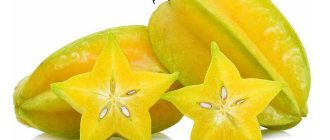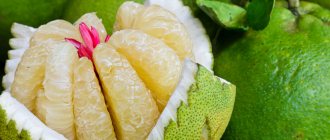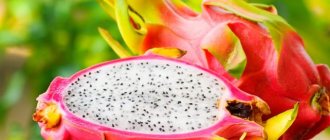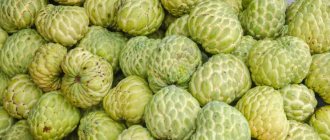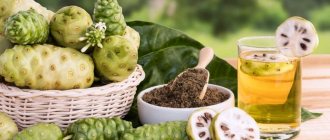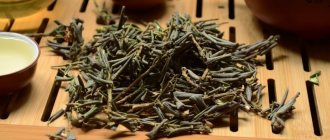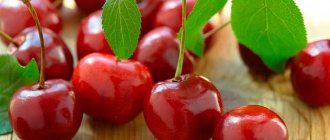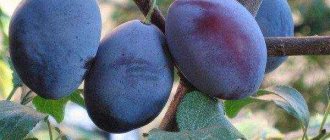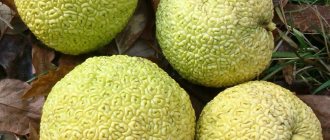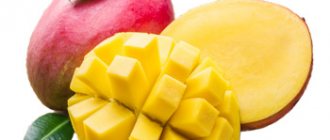Lychee - berry or fruit
Some call the tropical lychee fruit a fruit, others call it a berry. If we consider the issue from a scientific point of view, then they are single-seeded berries, such information is contained in botanical reference books. However, in everyday life it is quite acceptable to call lychee a fruit, since the fruits grow on trees and not on shrubs.
What is "lychee"
Lychee berry, or Chinese plum, is a large fruit up to 4 cm in diameter. The fruit grows on tall evergreen trees up to 30 m in height; the natural region where the fruit grows is China.
Recommended reading: Benefits of plums for the body
Lychee is a fruit with a recognizable appearance
The fruits are covered with a dense red skin with numerous pointed tubercles. Inside there is a jelly-like whitish pulp, and in the middle of the berry there is a large brown oval-shaped seed. The taste of lychee is sourish-sweet and slightly reminiscent of white grapes.
Lychee - what kind of fruit is it?
Evergreen lychee trees belong to the Sapindaceae family. They have a spreading crown with huge dark green leaves. Some varieties of these subtropical giants reach 30 meters in height.
The birthplace of lychee is considered to be Southern China. The first mention of eating berries is found in ancient Chinese literature. Subsequently, the plant began to be cultivated throughout Asian territory and other continents.
Lychee is a large, oval-shaped fruit covered with a fibrous, bright red, pimply skin. It has a fresh, sweet-sour and slightly astringent taste, with a pronounced wine undertone.
Lychee fruits are often classified as tropical fruits, which does not correspond to their official classification. Specialized reference books characterize them as berries similar in structure to apricots, plums and sloe.
In the center of the fruit there is a large oblong stone, surrounded by light pink juicy pulp. When cut, the berries resemble the eye of a mythical animal with a dark almond-colored oblong pupil, for which the Chinese call them “dragon eyes.”
Value and composition of lychee
The exotic fruit is highly valued not only for its pleasant taste, but also for its rich chemical composition. Lychee pulp contains the following substances:
- ascorbic acid;
- vitamins B1, B2, B9 and B6;
- choline;
- vitamins E and PP;
- potassium and phosphorus;
- stearic, myristic and palmitic acids;
- copper and manganese;
- linoleic and linolenic acids;
- magnesium and calcium;
- cellulose;
- iron, selenium and zinc;
- sugars and essential amino acids.
The fruit contains the most carbohydrates, about 15 g. Proteins account for another 0.8 g, and fats account for 0.4 g in the product.
Calorie content
The nutritional value of the tropical fruit is low. 100 g of pulp contains 66 kcal; if you do not abuse the fruit, it will be impossible to gain weight on it. In dietetics, fruits are highly valued due to their low nutritional value and metabolism-stimulating properties.
Tropical berries contain many vitamins, but they are low in calories
Compound
Lychee is a low-calorie and dietary product. Exotic berries contain a large amount of vitamins that are necessary for the human body. The pulp of the fruit contains a fairly low amount of sugar, so Chinese plums can be eaten by people who are on a diet.
Important! The amount of sugar in the berry varies from 6 to 15 percent, depending on the type of berry.
What vitamins are contained
100 grams of Chinese plum contains vitamins and microelements such as:
- K – 0.4 mcg.
- B1 – 0.010 mg.
- B3 – 0.7 mg.
- B6 – 0.1 mg.
- E – 0.07 mg.
- C – 71.5 mg.
- Potassium – 170 mg.
- Manganese – 0.055 mg.
- Selenium – 0.6 mcg.
- Zinc – 0.07 mg.
- Sodium – 1 mg.
- Iron – 0.31 mg.
- Calcium – 5 mg.
- Phosphorus – 31 mg.
- Magnesium – 10 mg.
A large amount of vitamins allows the berry to occupy a leading place in many European markets and stores. Scientific research has proven that the properties of lychee berries and their effect on the human body help prevent the development of various diseases.
Calorie content
Lychee contains substances that do not affect the accumulation of subcutaneous fat. There are 66 kcal per 100 grams of product, which consist of:
- Disaccharides (15 – 16 g).
- Carbohydrates (16-17 years).
- Protein (0.80-1 g).
- Fats (0.45 - 0.60 g).
- Water (80-90 g).
- Fiber (1.5 – 2 g).
The special properties of the fruit help to instantly quench hunger and thirst, without increasing body weight.
Beneficial properties of lychee berries
Lychee fruit has numerous valuable properties. When consumed as food, tropical berries:
- reduce cholesterol levels and protect the heart system and blood vessels from diseases;
- tone and increase energy reserves;
- improve intestinal microflora and help establish peristalsis;
- remove toxins and waste from tissues;
- suppress appetite and quench thirst, therefore especially useful on a diet;
- help support healthy pancreas, kidney and liver function;
- prevent the development of anemia and vitamin deficiency;
- increase immune resistance and help to cope with colds faster;
- have a beneficial effect on the body during inflammatory processes and help fight infections.
It is also necessary to note the strong antioxidant properties of the fruit; consuming it is useful for the prevention of cancer.
Beneficial properties of lychee peel
The dry, dense peel of the fruit is not eaten, but this does not mean that it should be thrown away. The skin of the fruit also contains many useful substances, mainly fiber, organic acids and mineral components with diuretic properties. In folk medicine, decoctions and infusions are prepared from the peel; they are good for edema and kidney diseases.
Dry fruit skin is a valuable medicinal component
The benefits and harms of lychee seeds
Elongated brown lychee seeds have beneficial properties; they contain vitamins, tannins, minerals and organic acids. The crushed seeds can be fried and the resulting powder can be used to treat nervous diseases, metabolic disorders and intestinal problems.
But at the same time, the dosage when consuming seed powder must be kept to a minimum. The seeds also contain toxic components; if the permitted limits are exceeded, the fruit seeds can lead to serious poisoning.
Properties of lychee essential oil
Essential oil, a valuable cosmetic product, is made from the pulp of the fruit. The oil is used to care for hair and skin of the entire body; it has softening, nourishing and regenerating properties. With the use of oil, the hair becomes stronger and acquires a healthy shine, and the epidermis returns to smoothness and softness.
Important! Lychee essential oil has a very pleasant, delicate aroma, so it is often used in aromatherapy and relaxing massage.
Essential oil from a tropical fruit has a very delicate scent
Properties of lychee tea
An aromatic, healthy tea is brewed from the dried peel of the fruit; it is especially popular in Chinese folk medicine. Drinking tea is recommended for depression, chronic fatigue, increased anxiety and a tendency to neurosis.
Healthy lychee-based tea also helps with sore throats, helps eliminate swelling and remove toxins from the body. The drink restores tone and restores vigor, improves immune resistance and promotes cellular renewal.
We recommend reading: Mint tea: beneficial properties and contraindications, how to make
Harmful properties of lychee fruits
Eating unripe lychee fruits is strictly prohibited.
Let us describe in more detail the health benefits and harms of lychee. The only contraindication to consuming these fruits is individual intolerance to the fruit (allergy). Children under 12 years of age should eat no more than 100 grams per day, as the exotic fruit can cause a rash. People suffering from diabetes should consume this fruit with caution. Lychee, like any other fruit, contains sugar. Excessive consumption of food can cause a spike in blood glucose, so you should keep your glucose levels under control.
You should not overeat this fruit; the high content of vitamin C can harm the oral mucosa, cause flatulence (bloating) and diarrhea.
Under no circumstances eat unripe lychee fruits, especially on an empty stomach, as incidents of mass poisoning are known. The thing is that green fruits contain substances that reduce gluconeogenesis in the body. As a result, the blood sugar level drops, and this can lead to the development of hypoglycemic coma, even death, if the first necessary medical care is delayed.
The health benefits and harms of lychee are determined by a huge number of nutrients, vitamins and minerals. The active substances contained in their composition make this fruit healing and unique. In dried form, the nutritional value of lychee does not decrease at all. From time immemorial, this fruit has won a huge number of fans all over the world. Regular use of lychee in food helps improve immunity, improves blood circulation, protects the heart and blood vessels, supports the central nervous system, effectively fights obesity and will keep your body healthy for many years, but do not forget about the possible harm when consuming an exotic delicacy.
Is it possible to eat lychee berry seeds?
Despite the fact that fruit seeds have beneficial properties, you cannot eat them whole, raw or fried, as this can lead to poisoning. The seeds are only suitable for heat treatment in crushed form and for making powder. In minimal quantities it can be used for treatment and as a seasoning.
Fresh fruit seeds are poisonous, but powder from them can be beneficial
What are the benefits of lychee berry?
The beneficial properties of the exotic fruit have a pronounced beneficial effect on the body. Lychee when consumed in moderation:
- helps relieve constipation and regulates bowel function;
- restores the balance of vitamins and minerals in the body;
- has a pronounced beneficial effect on the skin and creates a rejuvenating effect;
- helps protect against viruses and colds;
- reduces unpleasant symptoms during inflammatory processes;
- improves blood composition and strengthens blood vessels.
Lychee can be used as an aphrodisiac - eating the fruit has a positive effect on the reproductive system of women and men.
What are the benefits of lychee berries for the female body?
Eating this unusual fruit is especially beneficial for the fair sex. First of all, lychee promotes weight loss in women. A low-calorie fruit on a diet helps remove accumulated toxins from the body, eliminates excess fluid and at the same time maintains the balance of vitamins.
When consumed regularly, lychee has an extremely positive effect on the skin. The epidermis becomes tightened and smooth, the first wrinkles and skin irritations disappear, and cellulite decreases. This effect can be achieved even if you simply eat the fruit, and when applied externally, lychee will bring results even faster.
The beneficial properties of the fruit are indispensable for genitourinary diseases. With the help of lychee, you can fight the symptoms of cystitis and urethritis; the fruit helps with thrush and inflammatory diseases of the endometrium.
The fruit is good for fighting inflammation
Lychee has a beneficial effect on the nervous system of women. Eating the fruit reduces stress, relieves anxiety and improves sleep quality.
Is it possible to lychee during pregnancy and breastfeeding?
Eating lychee during pregnancy is not prohibited, provided that there is no allergy to the product. The beneficial properties of the fruit can be very valuable for a woman; the fruits will help cope with toxicosis and swelling that occurs during pregnancy. Since the berries contain a large amount of vitamins, lychee can prevent the onset of vitamin deficiency.
Eating the fruit is also useful for preventing colds; the product strengthens the immune system. This is especially important for pregnant women, since even a common cold turns into a test; strong medications cannot be used during pregnancy.
Lychee fruits contain a lot of folic acid. Thus, the fruits become useful not only for the expectant mother, but also for the fetus. They contribute to the normal formation of organs and tissues in the baby.
But during lactation, it is better to remove tropical fruits from the diet until the baby is 3 months old. Although lychee enhances milk production and is therefore beneficial for a nursing mother, it can cause allergies in a child, like any exotic fruit.
Is it possible to give lychees to children?
Young children often suffer from allergies to tropical fruits; intolerance can also be caused by lychees. Therefore, it is recommended to offer fruit to a child only after reaching 3 years of age.
Exotic fruits should not be given to children - this can lead to allergies.
For the first time, the baby should be given only 1 small peeled berry to try. If no negative symptoms appear after a few hours, the fruit can be left in the diet and pampered with it from time to time.
Attention! Lychee has some strict contraindications. Before treating your small child to an unusual fruit, it is worth discussing this issue with your pediatrician.
Uses of lychee berries
The beneficial properties of the fruit are used for several purposes: to lose excess weight, for treatment and for making desserts. In order for the fruit to maximize its valuable properties and taste, you should study the methods of its use in more detail.
For medicinal purposes
Lychee pulp has a medicinal effect when consumed as food. But more often in folk medicine, the properties of the peel and seeds are used to treat ailments; infusions and decoctions are prepared on their basis.
Lychee peel infusion to improve tone
To strengthen the immune system and increase body tone, you can prepare the following infusion:
- the dried skin of several lychee berries is ground in a coffee grinder to a powder;
- 1 large spoon of raw material is poured with a glass of boiling water;
- the product is infused for 15 minutes and passed through gauze.
The infusion should be taken twice a day on an empty stomach - in the morning before breakfast and in the evening shortly before dinner. The product can be used not only to improve overall tone, but also to treat colds and sore throats.
Peel decoction
From the fresh peel of the fruit you can prepare a medicinal decoction that will be beneficial for cardiovascular diseases. The recipe looks like this:
- remove the skin from several berries, wash them thoroughly and place them in an enamel pan;
- the peel is filled with water so that it completely covers the raw material and placed on low heat;
- After boiling, cover the pan with a lid and boil the peel for another 20 minutes.
After preparation, keep the broth covered for 15 minutes and then filter. You need to take 1 large spoon before breakfast and in the evening before dinner; the decoction will have a good effect in case of high cholesterol, a tendency to atherosclerosis and heart ailments.
Decoction of lychee peel with lemongrass
To prevent cancer, it is recommended to use the following remedy:
- dry lychee peel and dried lemongrass leaves are ground to a powder;
- the raw materials are mixed in equal quantities, 1 large spoon;
- pour the mixture with a liter of boiling water and place in a water bath;
- heat the broth for 10 minutes.
After the product has cooled, it is passed through gauze, and then consumed 200 ml three times a day on an empty stomach.
Seed powder infusion
For neuralgia, an infusion of dry powder made from fruit seeds has a good effect. To receive the funds you must:
- Wash the lychee seeds, air dry them, and then grind them in a coffee grinder;
- pour 1 large spoon of powder with hot water and leave for 1-2 hours;
- strain the sediment remover.
The infusion should be taken 1 large spoon three times a day. The product will help relieve neuralgic pain and, in general, allow you to cope with the disease faster.
Fruit peels and seeds after processing help fight inflammation
In cooking
Most often, lychee fruits are consumed fresh as a fruit dessert. But they are also used to prepare juices, homemade wines and liqueurs, and compotes. The pulp of the fruit is added to pancakes and pies as an unusual filling, and used in pastries and pies.
We recommend reading: The benefits of white wine and how to make it at home
Lychee improves the taste of fruit salads. The fruit adds an unusual taste to meat and fish dishes, and is also included in refreshing sweet and sour fruit sauces.
What is lychee
The lychee plant is distributed throughout Southeast Asia and other areas with tropical climates. The fruits are berries covered with a dense reddish shell and have a sweet and sour taste. The product, which bears the second name “Chinese plum”, is widely used by culinary specialists to create jams, compotes, and sweet sauces at home, and is used in folk medicine.
How does lychee grow?
The lychee tree can grow in China, Japan, and other countries in Asia, America, and Africa in tropical climates. An adult plant reaches a height of 15-20 m. The yield is 80-140 kg of fruit per year. The Chinese strawberry tree begins to bear fruit after about 20 years. It takes four years to form a stable trunk. The fruits are united in clusters on which grow from 3 to 15 berries.
At home, you can plant the fruit by seed, ensuring good drainage and soil moisture. However, experts believe that it is better to use cuttings. For successful cultivation, not only the soil, but also the air must be moistened. If you want tropical fruit to grow at home, spray and water it generously. The plant will need additional lighting in winter.
What does lychee look like?
In photos and pictures, the lychee berry resembles strawberries collected in clusters. The fruits are egg-shaped, have a bright pink peel, covered with small pimply formations. The shell is very dense, but easy to clean. The fruit in Asian countries is often called the “dragon's eye” because of its translucent pulp and large dark seed. The fruits are collected together with the branches, since those picked separately spoil very quickly.
Lychee tastes
When you taste lychee, you will realize that it resembles a mixture of grapes, honey and kiwi with a sweet and sour strawberry flavor. For this quality, Chinese strawberries are very sweet, but juicy and fresh. Some fruits have a pronounced sourness. The real taste can be felt by eating only fresh fruits, but dried and canned fruits are not without appeal. This exotic product will appeal to children and adults. You can eat a lot at a time, and the pulp of the fruit will not cause a feeling of heaviness inside the abdomen or stomach.
Benefits of lychee for weight loss
The exotic fruit contains a lot of fiber and diuretic components. Berries have low calorie content, but are very filling. Thanks to these properties, lychee is beneficial when consumed during a diet; the fruit suppresses appetite, removes excess fluid from the body, and helps get rid of toxins.
Advice! If you include tropical fruits in your diet, it will be easier to tolerate dietary restrictions. Berries will replace delicious, but forbidden desserts when losing weight.
Restrictions and contraindications
For some diseases, lychee consumption is not recommended. The list of contraindications includes:
- individual allergy to fruits;
- pancreatitis and gastric ulcer in the acute stage;
- gastritis with high acidity;
- gout.
The fruits should be consumed with caution if you have diabetes; the pulp contains a lot of natural sugars. The daily dosage of lychee for a healthy person should not exceed 200-300 g, otherwise abuse of the fruit can lead to the development of diarrhea and allergic reactions.
Fresh fruit should be evenly red, but not too dark
Use of lychee in medicine
Lychee fruits are not pharmacopoeial in Europe, but they are very popular in oriental medicine. Most dietary supplements produced in Japan, China and India contain an extract from the fruit.
- Oligonol is a pharmacological preparation based on lychee extract:
- restores the elasticity of blood vessels;
- improves blood circulation;
- eliminates “cold extremities syndrome”;
- promotes the production of antioxidants;
- speeds up metabolism.
The drug has undergone research and is recognized by official medicine.
Rules for selection and storage
Choosing a fresh and tasty fruit in a store is quite simple, even if you have no experience of eating lychee:
- You need to buy fruits that are hard to the touch, weighty, and covered with a textured shell.
- The peel should not have dents, cracks or other damage.
- The color of the peel of a ripe fruit should be dark pink or red. If the skin of the berries is purple or has a brown tint, this means that the fruits are overripe and will no longer be able to please with a pleasant taste.
As for storing fruits, they need to be kept in plastic bags in the refrigerator; they retain their freshness and beneficial properties for 1-2 weeks. If you provide lychee with a humidity level of 85% and a temperature no higher than 2 °C, then the fruits can be stored for up to 10 weeks.
For long-term storage, lychee berries can be frozen, in which case they can retain their beneficial properties for up to 2 years. Dried fruits can be stored at room temperature for up to a year in dry glass jars.
The fruit can be kept in the refrigerator for about 2 weeks.
